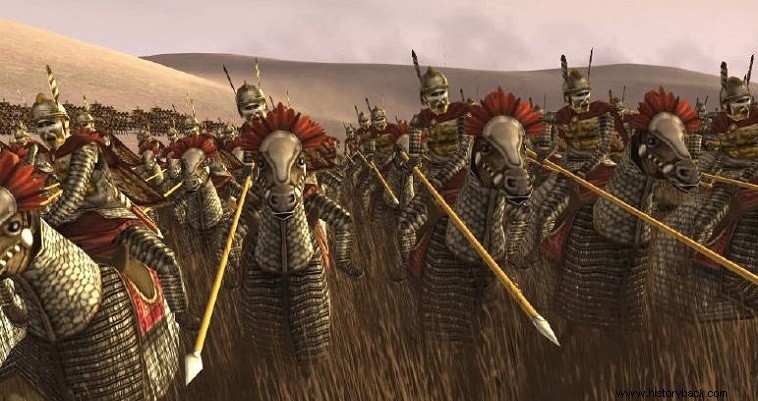
The battle of the Areios River (today's Hari) in 209 or 208 BC. was a catalytic conflict between the kingdom of the Seleucids and that of Bactria. The Seleucid king Antiochus III the so-called Great, attempting to recover the eastern provinces of the state founded by his ancestor Seleucus, invaded the territories of the Hellenistic kingdom of Bactria controlled by Euthydemos.
Antiochus had launched a campaign to recover the provinces that had been cut off from the Seleucid state during the reign of his predecessor and in 209 BC. arrived in Bactria. Euthydemos ruled there.
The army of Antiochus was marching in the area of the Arius river when the Seleucid king was informed that Euthydemus, at the head of a force of 10,000 horsemen only, was nearby. Antiochus was also informed that the Greek-Bactrians guarded the river crossing during the day, but most of them retired at night to a nearby town, about 4 km away.
So he decided to take advantage of the darkness to cross the river with his army. But Euthydemus was also watching the movements of his opponent and so he moved with all his men to the river crossing where the Seleucids would pass and attacked them at dawn.
Confusion ensued but Antiochus rallied around 2,000 of his elite barricaded cavalry and charged against his opponents despite a 1:5 outnumbered force. Antiochus himself fought heroically setting an example for his men who imitated him.
Losses on both sides were very heavy. Antiochus managed to defeat the vanguard of Euthydemus but when two other units of opposing cavalry attacked his men in the flanks he found himself in an extremely difficult position. However, he was saved thanks to the general of Panaitolos who, at the head of a corps of peltasts, suddenly rushed at the enemies and stopped them.
At the same time Antiochus reorganized his surviving horsemen and managed to retreat to the opposite bank of the river, together with the prisoners he had captured, although his horse was killed and he himself was wounded.
But Euthydemos, seeing the great deterioration of his power, decided to retreat to his capital, Bactra. Cavalry losses were heavy. Antiochus lost about half, maybe even more, of his horsemen, while Euthydemos lost 2-2,500 of his men.
Antiochus took advantage of his victory and moved towards Bactra, besieging the city for three whole years. Eupthydemus finally surrendered on terms recognizing, for example, Seleucid suzerainty and presenting Antiochus with war elephants. The agreement was sealed with the marriage of Antiochus' daughter to Euthydemus' son Demetrius.
